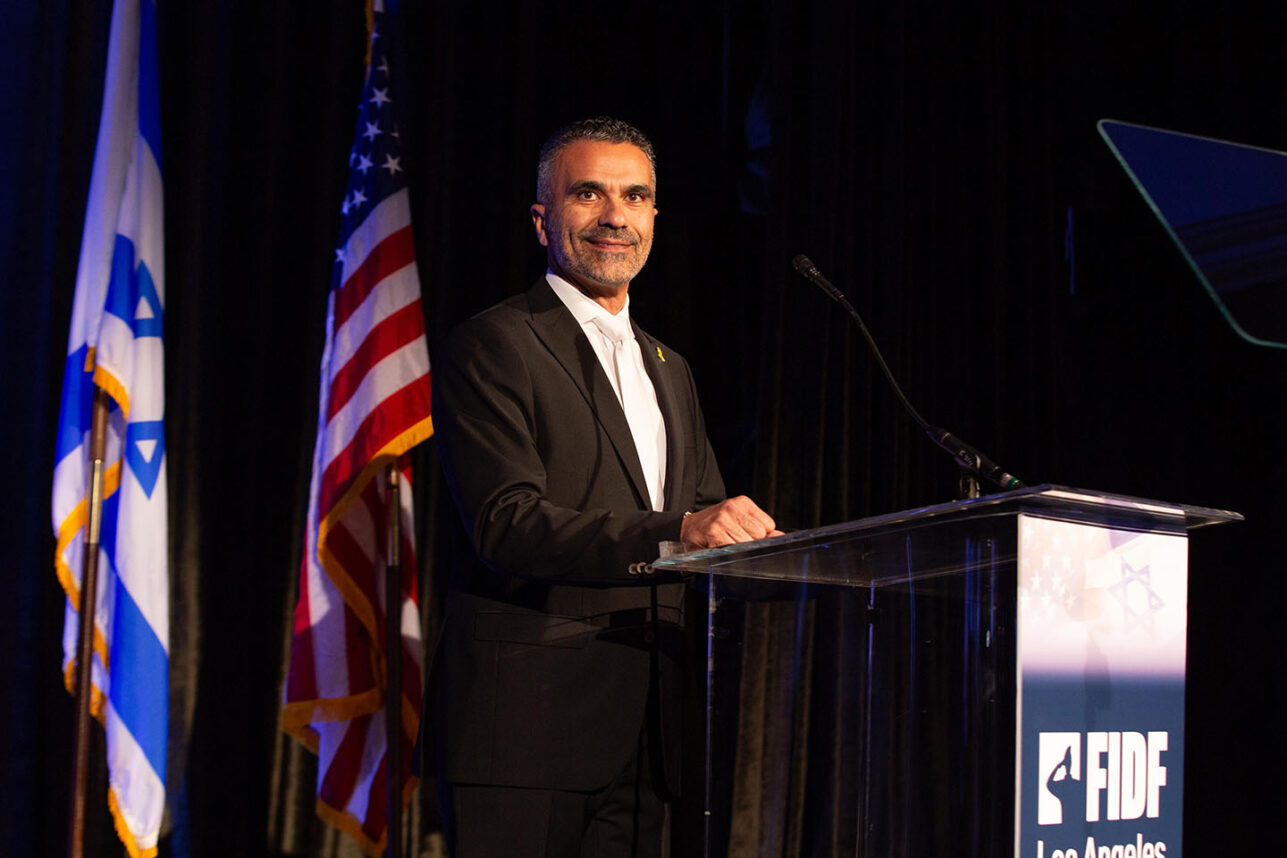Jay Greenberg was eager to hear the therapist from Jewish Family Service (JFS) dole out parenting advice about teenagers last spring.
Greenberg was interested for two reasons: first, his youngest teenager (one of three), a 15-year-old boy, was already seeing a therapist due to behavior problems attributed to immature social skills; second, Greenberg harbored self-doubt about his own skills as a parent, because he went through adolescence without an immediate role model. His his father died when he was 11.
“It was nice being in a room with parents going through the same thing,” said Greenberg, 47, of Lake Forest, a district sales manager for a drug company. An audience of 20 parents joined Greenberg at Parenting Your Teen, a presentation by JFS psychologist Marcy Middler at Irvine’s Tarbut V’ Torah Community Day School. Topics ranged from power struggles to better listening.
For his part, Greenberg was hoping the parenting seminars would continue. He would be happy to pay for weekly sessions, he said. “Maybe I can offer insights to a parent with a 12-year-old,” he said.
Greenberg, though, appears to be an exception.
While the parenting talk was intended as a one-time marketing effort to raise awareness of JFS services, the Costa Mesa-based agency for months has been unable to generate interest in establishing a communitywide teen support group, which was to be located at the school. Neither students nor parents have taken advantage of after-school psychological counseling, which JFS agreed to provide in an informal referral arrangement with Tarbut.
Either out of habit or lack of awareness, Middler said that people seek medical advice outside the Jewish community. She theorized that parents who do seek mental health help for their children search for outside professionals to ensure privacy, because mental illness remains stigmatizing.
“There is a big need for teen groups in the Jewish community,” she said. “Individual therapy is not as effective for teens as a group.”
Yet, the tiny social services agency — which last year was the largest single fundraising recipient of the Jewish Federation of Orange County — is in dire need of more paying clients at a time when demands on its services are increasing, even as its revenue is shrinking.
Ending its fiscal year on June 30 with an unusual $25,000 shortfall, the agency, which provides services on average to 600 people each month on an annual budget of $850,000, by midmonth will consider reducing its 10-person staff or resort to more fundraising to cover its deficit.
“We’re bracing for a lean year and cutting programs,” said Mel Roth, the agency’s executive director.
So, too, are county agencies that provide low-cost social services, health care and housing. In the county’s initial budget review in February, each agency expected budget reductions in 2003-04 due to the state’s fiscal crisis.
Middler and three other licensed social workers counsel individuals, families and groups of five to 10 people. Currently, JFS moderates two women’s support groups, another for divorced fathers and others for caregivers and the bereaved. The agency also helps resettle refugees, provides information referrals and makes interest-free loans of up to $1,000.
This year’s precipitous increase in requests for fee reductions has cut into the agency’s revenue. It has coincided with a 70 percent increase in requests by individuals for direct financial aid, which the agency can do little to abate.
“We’re getting the message from different directions of economic impact,” Roth said. “We’re finding people can’t even pay a minimum of $10 or $15” for services.
The agency in recent months hired a consultant grant writer, but success on that front could be months away.
Conservative in managing the agency’s resources, Roth holds a reserve account with four months of operating funds. That has helped keep the agency’s door open between January and June, which more typically is a period of stable revenue.
About a quarter of JFS funding is provided by the county’s Jewish Federation, the umbrella fundraising organization for local and national Jewish groups, which raised $2 million in the year ending June 30, a small decline from a year ago.
Roth predicted that the Federation’s allocation will remain stable but expects less funding from Orange County’s United Way, which last year provided 19 percent of the agency’s revenue.
While the local chapter bucked the national trend by raising $26.4 million — about the same as in 2001-02 — to help the needy, JFS is likely to see its distribution decline 30 percent, Roth said. Another 20 to 30 local nonprofits were added to the 88 organizations United Way will distribute funds to this year.
“There is less money to apply for and more groups seeking them,” he said.
Roth added: “It’s not a good scenario.”





















 More news and opinions than at a Shabbat dinner, right in your inbox.
More news and opinions than at a Shabbat dinner, right in your inbox.